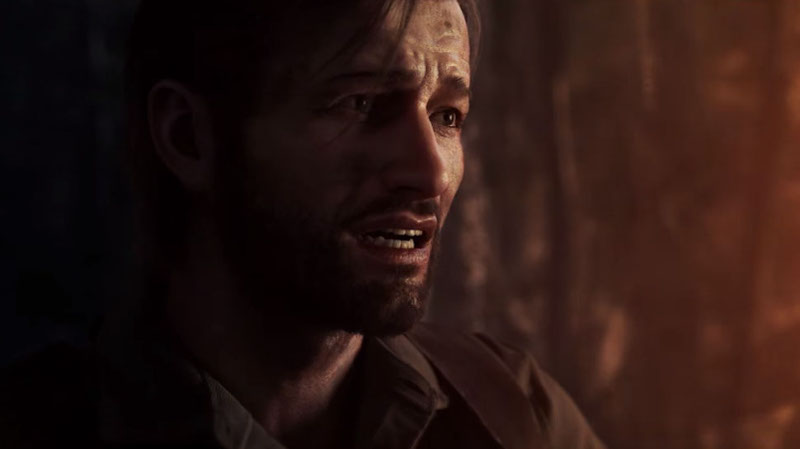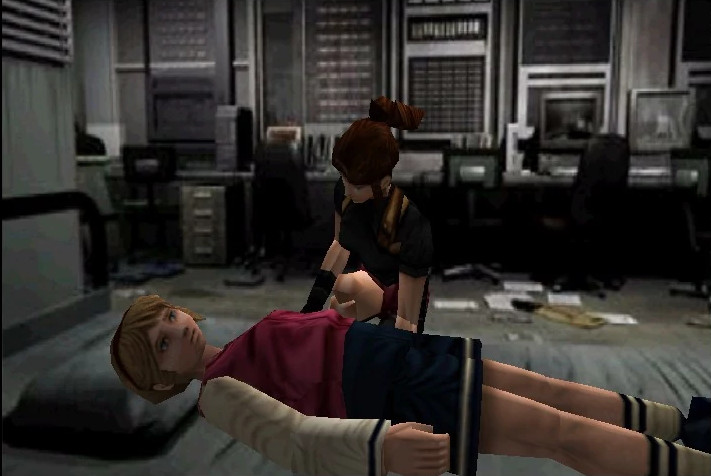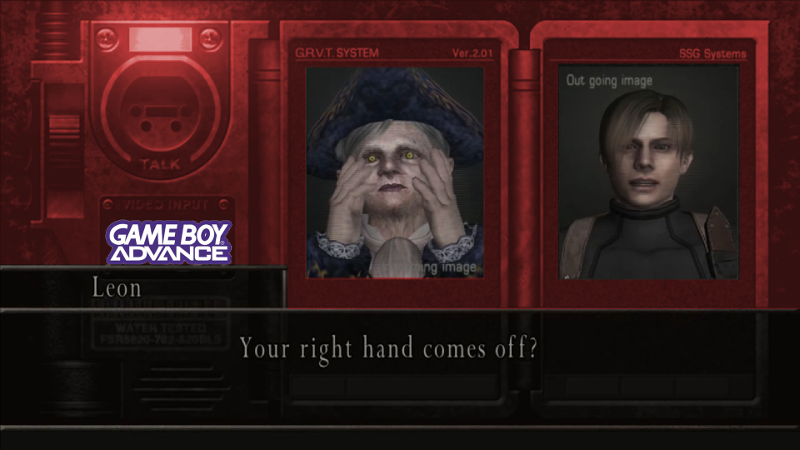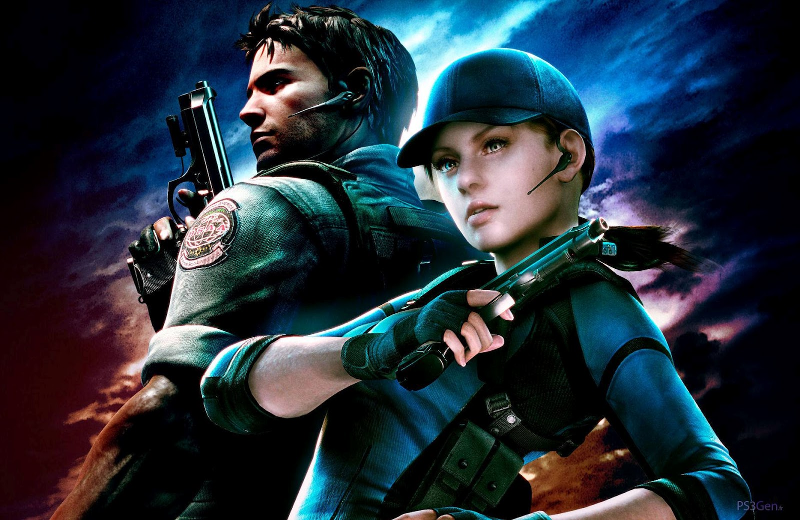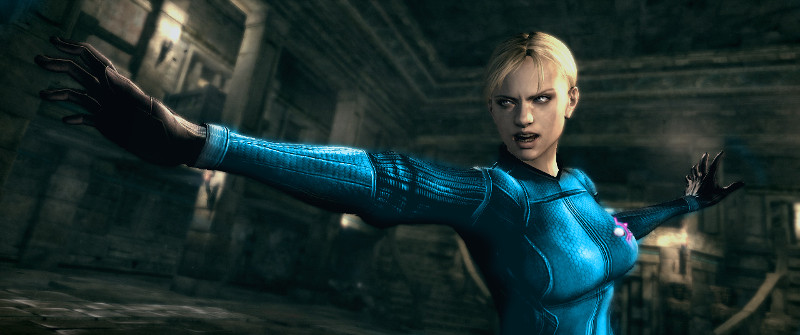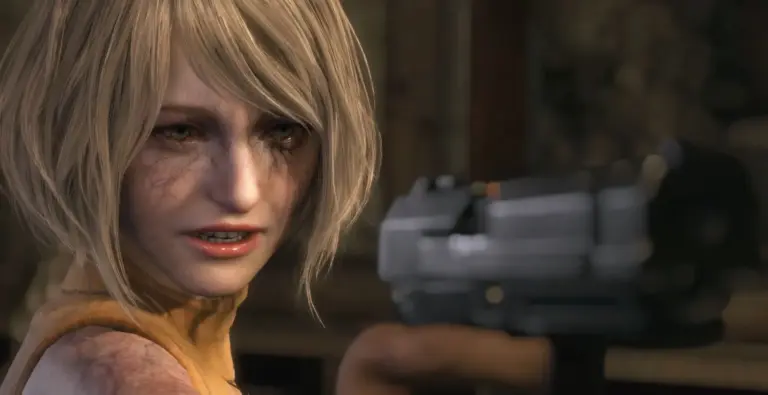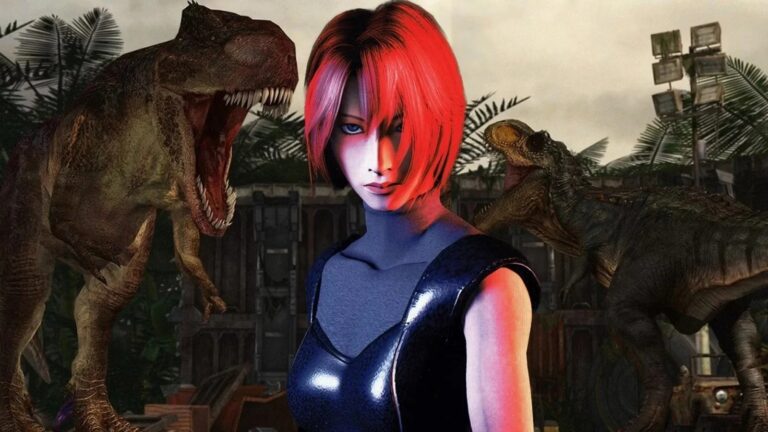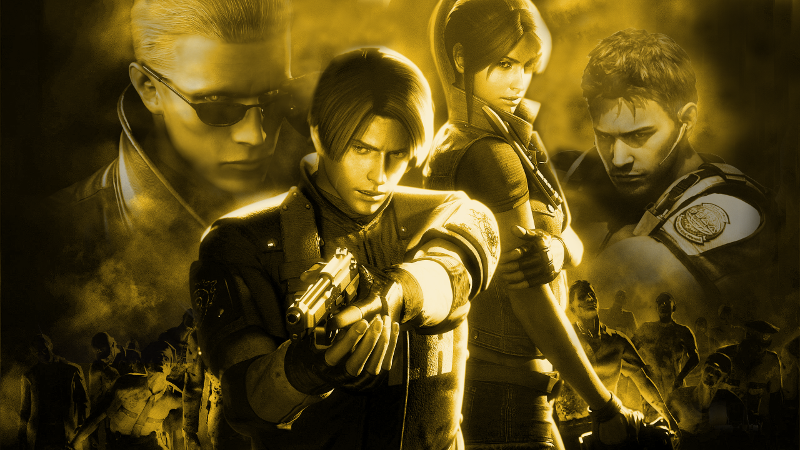
As we all know, the Resident Evil franchise has accrued a vast cast of characters over the years, many of which are beloved by fans. More often than not, I’ve enjoyed the characters spanning the entire series. That is not to say that its cast hasn’t had its share of….iffy turns. The franchise has had ups and down regarding its writing quality, and this certainly applies to the franchise’s characters, ranging from incredibly well executed to severely lacking in sensible motivations and character arcs.
After taking a closer look at some of the biggest names in the series’ history, I’ve noticed a few trends. At times, Capcom has created charismatic, fun characters, which are enjoyable to follow and root for. That being said, it is a rare occasion that they receive any compelling internal conflict, which prevents many of them from being especially well-written. There are also some inconsistencies in terms of character traits from those who appear in various entries; this is a problem that Capcom seems to face often. In this two-part article, I’ll take a look at the positives and negatives behind this iconic series’ cast.
One of the fundamental elements of a well-written character is that they face some form of an obstacle, if not many, across their journey that they have to overcome. In these cases, the character may or may not succeed, but they usually learn something or somehow changed for the better as a result of their trials. This is a basic aspect of storytelling, and many stories feature this element in one form or another — Resident Evil is no exception. However, a sizeable amount of characters across the RE franchise lack compelling arcs. Think of the original Resident Evil, which features Chris and Jill entering a spooky mansion. Both are confused as to what is going on, but the two survive, gradually gaining confidence and firepower, learning the truth behind the incident, and ultimately escaping the ‘evil’ lurking there. While this evolution from being weak and naïve to capable and confident works well as a form of gameplay progression, without some other additional element of growth, it hardly makes for incredibly interesting characters.
An example for Capcom to take notes from would be, Tango Gamework’s The Evil Within 2, which sought to address past criticisms of the series’ protagonist, Sebastian, of being bland and uninteresting. Of course, throughout the game, it is Sebastian’s goal to ‘learn how to survive’ as the tagline suggests, but his primary motivation is to rescue his trapped daughter. Many would say that this is an overdone trope, and I think that is a fine criticism to make — although, I would argue in this instance the trope is applied effectively. The game calls attention to the tragic events that took place in the prior installment and the impact this event had on Sebastian. His emotional struggles are understandable, one that many can sympathize with — this encourages the audience to become invested in whether or not Sebastian succeeds in the end. I feel as though this is an element that is much needed in the Resident Evil franchise.
Fortunately, there is an instance in the Resident Evil series in which extra consideration is given to its characters; Resident Evil: Revelations 2 featured some of the series’ best writing, along with some of its worst. This game saw the return of Barry Burton, who was on a quest to find his daughter in a desolate island that formerly belonged to the Soviet Union. During Claire’s playthrough, Moira Burton vents her frustration with her father to Claire on several occasions, and the audience eventually learns of a tragic event that created a wedge in their relationship. By the end of the game, Moira and Barry are able to resolve the issues in their relationship. Moira also overcomes a crippling fear she has held for most of her life, which is especially interesting considering how the concept of ‘fear’ plays a direct role within the game’s narrative (we’ll talk more about Barry later).
So Capcom did a good job there, yay you did it, gold star. Although that isn’t to say the game handled its characters well across the board because there is a pretty massive flaw worth discussing. Putting that aside for a second, let’s examine how each mainline character in the Resident Evil series changed — for better or worse.
Claire Redfield
Even though Revelations 2 has probably the some of the best writing in the series, it’s just a shame they couldn’t spend the same amount of time and energy developing Claire’s relationship with her new love interest. And a little bit more time really could have been spent keeping her character consistent.
One of Claire’s notable character traits which can be primarily found in both RE2 and RE: Degeneration is that she was able to connect to children emotionally, often taking a maternal role whenever zombies became a threat — this is a strangely recurring motif of the franchise. Such is demonstrated throughout Resident Evil 2 during pretty much any of her interactions with Sherry, and this behavior can be found in a brief scene in Degeneration in which Claire jumps into a crowd of zombies to shield a forgettable little girl.
So, of course, when one finds out that there is yet another little girl in danger in Revelations 2, one would expect to see a reprisal of Claire’s protective nature. However, in Revelations 2, Claire is infinitely more interested in saving her boss AND love interest, who is totally NOT a traitor to TerraSave and definitely not suspicious. Claire and Neil are given two to three minutes of total screen time together, and nothing meaningful comes of it. As a result, one of the most notable aspects of her character was thrown away for an undeveloped romance with a guy who is about as interesting as a rock. Even if you aren’t a fan of Steve Burnside, at least he had a personality, and their relationship didn’t blatantly contradict Claire’s character.
Leon S. Kennedy
In the character personality department, Resident Evil has lacked in many instances. However, the franchise has also spawned characters whose mere presence provides entertainment alone. Leon S. Kennedy from Resident Evil 4 is one of the best examples of this. Leon’s personality is drastically different from how he acted in Resident Evil 2, which makes sense considering the major time gap between RE2 and RE4, along with the experiences he has obtained since then. He is somewhat of a smartass in RE4; remember the wonderful moment in which Leon is in a Skype Chat with Salazar on his Gameboy Advance? Salazar states that he has sent his ‘right hand to dispose of him’, and Leon retorted…
Leon’s humorous side helps provide moments of levity throughout the game, and the dynamic generally works well with other characters like Ashley and the several villains. When most characters in the series ordinarily take situations very seriously (which makes sense given the genre of the franchise), it’s a nice change to have a character with a more light-hearted side. Unfortunately, this element of Leon’s personality has strangely come and gone through subsequent installments such as Resident Evil: Degeneration and Resident Evil 6.
While Resident Evil: Vendetta is by no means a good movie, despite its many flaws, I find myself being a lot softer with my criticisms of the film as opposed to many others, simply because I had really-dumb-fun watching it. That said, Leon is probably at his weakest here. In RE6, Capcom had the idea of making Chris all dark and broody. Apparently whoever was in-charge of Leon’s character took a brief stroll over to the RE6 section of Chris’ Resident Evil Wiki page and did a little bit of Ctrl-C, Ctrl-V, if you catch my drift. While Leon still retained his role as ‘the funny one,’ he’s become a rather miserable person to be around when he isn’t performing martial arts on zombies. In an early scene with Leon, Rebecca, and Chris, he is so damn resistant to the idea of ‘taking down the bad guys’ that it feels wrong and unnatural. That may have been the angle the writers were going for, but the proper time wasn’t spent to execute the complete 180 transition his character takes. Furthermore, the tragic event that causes Leon to copycat Chris isn’t even shown in the film. We don’t get the opportunity to sympathize let alone see any of the soldiers that were lost in this incident; the impact it supposedly had on Leon is swept to the side after one or two scenes so that he can perform more backflips. As I continue discussing these characters, you may notice the recurring trend of characters lacking adequate time to develop, or one whose time on-screen isn’t utilized effectively.
Chris Redfield and Jill Valentine
Hear me out, okay. I like both of these characters primarily due to how iconic they have become and how central to the plot they are, but one’s likes don’t necessarily have to align with what one thinks is good because Chris and Jill are kinda the same character. I’m gonna describe one of them, and I’d like you to try and guess which one of the two I am describing.
-Past bio-terror outbreaks severely scar them.
-This character has an intense hatred of Wesker and Umbrella. They are hellbent on bringing them to justice.
-They are highly skilled combatants and have achieved a long and successful career in hunting down B.O.Ws.
-The character always maintains a professional demeanor. Always focused on the task at hand.
-They care deeply about saving and protecting others.
To be honest, I forgot who I was writing about when I first started that list. It doesn’t matter, though, because these two are way too similar. Up until the more recent entries in the series — as in all the events in RE1, RE3, and the Umbrella and Darkside Chronicles —, those traits easily apply to both of them. As I mentioned earlier, Chris became the ‘dark and broody’ type in RE6, which is a pretty significant departure, but it took several prior installments with minimal changes to reach this sudden point. Even if the execution of this idea may leave a lot to be desired, I’m glad they at least gave him ‘something’. Better late than never, right?
In the Resident Evil book adaptation series by S.D Perry, Jill was raised to be a thief and was an accomplice to a life of crime. Eventually, she was able to escape a less than favorable lifestyle in the place of becoming a member of S.T.A.R.S. However that was isolated to the books and not in the games. While there may be satisfying character building taking place in the extended and alternate universes/canons of the series, that doesn’t change the fact that many major installments in the primary medium for the series failed to make these characters stand out on their own.
The larger point I am getting at here is that in the games these characters fulfill the same role in the story. Narratively, they are both just inserts for the player characters, and Chris and Jill don’t have distinct enough personalities, and neither of them have a character arc that is unique to them for most of the series. This is an issue that could easily be amended. Perhaps one of them could be more hot-headed, or extremely confident in themselves. Maybe one could have a generally positive demeanor despite the circumstances, or perhaps their kindness could be drastically amped up. Pretty much anything could work, just give either of these characters something. The last few times they were on-screen together they might as well been action figures with the same dialogue.
One of the good things you can say about Resident Evil 6 is that Chris was given somewhat of a personal struggle to overcome his post-traumatic stress over the events of prior installments. Perhaps this struggle could be handled better, but I can at least recognize that it is present in the game and I can praise that. Hopefully, at some point, Capcom will remember that Jill Valentine exists and they do something interesting with her, and when I say “something interesting” that doesn’t include turning her into Zero Suit Samus (which was admittedly entertaining).
Protagonists have been a bit of a struggle for Capcom in the Resident Evil series. At their best, we’ve gotten RE4 Leon, but both him and Claire suffer greatly from a lack of consistency, which screams to me a lack of understanding of these characters, and for others like Chris and Jill, it feels as though Capcom has either forgotten or hasn’t cared about fleshing these characters out to be something more than they currently are. It feels as though Capcom has forgotten that characters are supposed to be people, each with their own likes and dislikes, with their own approach to any given situation, and that they aren’t merely vehicles to provide fanservice.
You might be saying, well what about [insert character name here], or [insert character name here], and you would be right in that there are a lot of characters we haven’t talked about yet, although there may be too many for me to cover entirely in one article. However, in terms of core characters, Resident Evil certainly has some highs and some lows that should definitely be discussed. So we’re gonna have to break this into two articles. Stay tuned for part two in which we’ll cover many of the important and unimportant side characters.
But I’ll leave you with an open question. What do you think of the Resident Evil series’ characters? Are they fine as is? Should we hope for better? Let us know in the comments.

 TheAveryChu
TheAveryChu